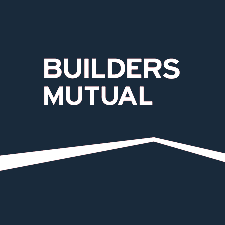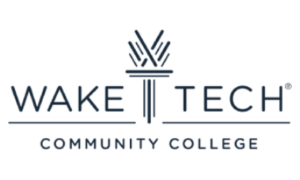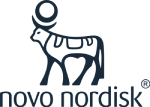Learning Management System Services
For businesses to be successful and competitive, they must be able to adjust and follow the digital world. The most important feature of any business is its staff. Learning Management Systems (LMS) help employees grow and develop their skills. These systems can also be used for compliance training and business performance to keep a company ahead of its competition.
Most businesses discover that executing and maintaining these learning systems can quickly overwhelm internal in-house personnel. The end result is that their true functionality remains unexploited, and users shy away from adopting them. Learning results end up being subpar, and companies don’t make the most of their investment.
If you want to use LMS administration and management in a way that standardizes training programs, you need professional LMS management services. With the right partner, your LMS becomes a strategic tool rather than a technical burden.
TimelyText ensures your platform is optimized, user-friendly, and aligned with your learning goals. We help you reduce administrative stress, boost engagement, and unlock the full potential of your learning ecosystem.
From daily support to long-term strategy, our team becomes an extension of yours.
Effective LMS Management
Learning Management Systems are sizeable investments for companies, as they often involve licensing, implementation charges, and ongoing maintenance requirements. However, companies often fail to maximize the full value and range of their LMS solutions because of inefficient management and administrative practices.
Professional LMS management services overcome these problems thanks to their expert-level training skills. They can turn struggling training initiatives into engaging learning communities.
The most important aspect of successful LMS management is to understand the features of these systems, as they are much more than content repositories. They are helpful platforms that require strategic thinking, technical expertise, and ongoing optimization.
Professional administrators know how these platforms can be used and which benefits they can deliver. These administrators know all the platform features, user experience design principles, and learning analytics. They can help your business use an LMS system to achieve specific learning goals and outcomes.
Modern LMS solutions are also highly customizable. They can integrate with other systems and have advanced features that, if properly configured, can improve the learning experience. Professional support can connect the platform features with the expected results and improve performance for a business.
Streamlining Training Through Expert Administration
Training programs are successful when they are simple and targeted. Users respond to them if they find value and simplicity in the learning approach. That’s where professional LMS administration can help with connecting interdependent processes to create a fulfilling learning experience.
Typically, the process of doing so involves the steps below.
Auditing Existing Learning Systems
Professional administrators run audits to assess existing systems and find inefficiencies, redundancies, and areas for improvement. They can then adjust each training component to support the business objectives.
These audits go beyond surface-level checks—they include a comprehensive review of system configurations, user roles, course performance data, and learner feedback. By identifying outdated content, underutilized features, or barriers to adoption, administrators can craft a roadmap for system optimization.
Organizing the Content
An important aspect of the content is how well it is organized. The aim is to make it accessible and intuitive in a logical way.
Professional administrators will develop a logical course structure, intuitive navigation, and clear learning pathways to help users through the learning experience. This type of organizational plan reduces confusion and minimizes the time spent searching for relevant content. It is efficient and cost-effective, allowing learners to focus on learning. Effective content organization also helps align learning with user roles and competencies, ensuring the right people get the right training at the right time.
User management
Not all content should be available to all users. There must be a thoughtful and targeted organization of the material that takes into consideration users, role assignment, and access control. Learners get the content they need, and the management system maintains its security and compliance standards.
LMS systems thus work with enrollment processes, intelligent grouping methods, and personalized learning pathways. The learner can then have access to a customized experience that respects their preferences and organizational needs.
The integration challenge
A major feature of LMS systems is to integrate them with existing organizational systems. This is a high-level technical task that should be left to expert administrators.
A skilled admin will create unified ecosystems that merge data and eliminate silos. They can also provide key insights into learner growth and the effectiveness of organizational training. To be successful and efficient, professionals integrate learning management systems with human resource information systems, customer relationship management systems, and other enterprise software.

Improving Efficiency Through Strategic Management
With the right implementation, LMS systems can become a highly successful and efficient part of your organization.
Efficiency and success
Professional management services identify bottlenecks before they show up and eliminate redundancies for maximum efficiency. They can optimize an organization’s overall learning processes, improve its resource allocation, and measure its performance. This saves companies money and time, making them not just more efficient but also more profitable.
Automated reporting and analytics
Automated reporting and analytics provide organizations with valuable insights into the effectiveness of training, learner engagement, and compliance status.
Trained administrators configure these systems to provide data and information that support decisions. They also highlight areas for improvement and show how to achieve a healthy return on investment. After all, all decisions should be made based on data and quantifiable information to be effective.
Resource optimization
Professional management services can help with resource optimization and deliver extra value. They help analyze how effective the content is and how users respond to it. They will also find opportunities to consolidate resources and eliminate redundancy from materials. As they constantly gather information, they can help direct investment into impactful training programs.
This targeted and thought-out process helps organizations make the most of every dollar they spend on training. At the same time, they deliver better and more engaging learning experiences.
Standardization
Standardized procedures and processes make training programs consistent. They reduce administrative workloads and create start-to-end workflows for content development, review, approval, and publication.
Improving Engagement Through Expert Design
How can you engage and interest learners? Most employees have already undergone many training programs, and they tend to find them repetitive or not as helpful as expected.
Learner engagement is one of the biggest challenges to organizations.
Learner Engagement
Professional LMS management services overcome the engagement problem by knowing how to make content enjoyable and to-the-point. They know how to use learning psychology and user experience design to turn passive content consumption into active learning experiences.
Intuitive Interfaces
Intuitive interfaces make learning smoother. Interfaces that are too complex or confusing undermine content and distract learners from the material. Skilled administrators maintain clean, logical, user-centered designs that make sense and encourage exploration.
These designs reduce frustration and cognitive overload, making the experience more welcoming for users of all technical skill levels.
Gamification
Everybody loves a good game, and gamification elements, when done well, can have a major impact on learner engagement and motivation. Professional management services use badges, leaderboards, progress monitoring, and other game-like elements to support learning objectives. It is a constructive approach to gamification that encourages participation and engagement.
Personalization
Personalization features make content more interesting and engaging. Adaptive learning adjusts to learner behavior, performance, and organizational role requirements. Professional administrators use these features to create dynamic learning paths that match users based on their activity and performance metrics.
Custom eLearning Content
When working together, eLearning and online courses content development services deliver immense value to organizations. As LMS management handles administrative and platform optimization, custom content development provides learners with engaging and relevant content.
That is why professional LMS administrators work with content developers and instructional designers to create eLearning content for platform delivery and user interaction. Thanks to this coordination, technical compatibility issues are minimal, and design principles can be applied consistently and effectively.
Tailored eLearning content creation also requires skills in adult learning principles, multimedia design, and interactive technology. When these are combined with specialist LMS management, organizations can create entire learning environments that fulfill their needs and expectations.
And since content is often delivered across several devices, browsers, and user configurations, administrators must understand platform requirements, compatibility, and performance optimization as well.

Measuring Success and
Continuous Improvement
To ensure the high quality of the end course, professional LMS management experts follow tight quality control processes that quantify success by analyzing the relevant metrics and KPIs.
Analytics
Professional LMS management services analyze data beyond simple completion rates to quantify and qualify the learning effectiveness, behavior shift, and business impact. These analytics techniques give organizations the information they need to continually optimize their training initiatives and deliver a healthy return on investment.
Advanced reporting
Advanced reporting lets businesses track learner progress and spot knowledge gaps that need to be fixed. Reporting also connects the actual training with performance improvement. Businesses and organizations thus know how successful it really was. Experienced managers use these analytical tools to assess and then establish strategies based on real data.
Feedback
Feedback systems and continual improvement processes let LMS platforms evolve and adapt to changing needs and learner expectations. Regular platform upgrades, content revisions, and new features keep the system relevant and efficient over time.
Maximize Your LMS Investment
Modern learning management systems require specialized expertise to reach their full potential. Professional LMS administration and management services give organizations the knowledge and resources they need to turn training initiatives into productive assets.
LMS management professionals can help companies maximize their training investment and boost their efficiency. The convergence of custom eLearning content development services matures into end-to-end solutions that cover both platform optimization and content creation. Users and learners can then benefit from top-notch training experiences, adding real value to the organization.
Professional LMS management, skills training, and administration services investments are integral parts of any large organization. They pay for themselves with increased training ROI, less administrative load, and high learner satisfaction.
However, to get the most out of their LMS investments, organizations should partner with experienced service providers who know how to turn modern learning platforms into a worthwhile investment. Contact us today to share your project’s goals, book a free demo, and find out how we can help! TimelyText is a trusted professional writing service and instructional design consulting partner for Fortune 500 companies worldwide.
Frequently Asked Questions
What is LMS management, and why is it important?
LMS management involves the daily oversight and strategic maintenance of your learning platform. It ensures your system is optimized, content is current, users are supported, and learning goals are met—without overwhelming your internal team.
Why should I consider outsourcing LMS administration to a service like TimelyText?
TimelyText offers decades of experience managing learning platforms for organizations of all sizes. We bring skilled administrators who ensure smooth operation, user satisfaction, and full utilization of your LMS investment.
How does TimelyText customize LMS services to our organization?
We begin with a deep-dive audit and discovery process. This helps us understand your training objectives, user base, and technical environment so we can tailor our services to your exact needs, whether that’s system setup, user management, content organization, or reporting.
What types of LMS platforms does TimelyText support?
We support a wide range of platforms including — but not limited to — Cornerstone, Workday Learning, Moodle, SAP SuccessFactors, Docebo, and Articulate 360. If you’re using a custom or industry-specific LMS, we’re happy to evaluate and support that as well.
Can TimelyText organize and streamline our existing learning content?
Yes. We review and restructure your content into logical pathways, ensuring it’s accessible, searchable, and aligned with your training goals. Our team simplifies complex catalogs and improves user experience.
How do you improve learner engagement through LMS management?
We apply best practices in user experience design, learning psychology, and system configuration to make your platform intuitive and engaging. From setting up gamification features to personalized learning paths, we help turn passive users into active learners.
Can you convert our current training into LMS-ready modules?
Absolutely. Whether you have PDFs, classroom decks, or outdated SCORM files, we can modernize and upload your materials into your LMS—fully tagged, tracked, and ready for deployment.
How much does LMS management cost?
Costs vary based on system complexity, support level, and the number of users. We offer flexible pricing and bill only for actual hours worked with no retainers or hidden fees.
Can TimelyText train our internal team to manage the LMS?
Yes. We offer hands-on administrator training, user guides, and train-the-trainer sessions to empower your team with the tools and knowledge needed for long-term success.
How do we track the success of your LMS services?
We track success through platform metrics like learner adoption, course completion rates, and administrative efficiency. For organizations looking to tie learning outcomes to business performance, we also partner with evaluation experts like eParamus.
Our Featured Clients
Give us a call at
919.847.2580
Ready to work with us?
Submit Resume
Still have questions?






















